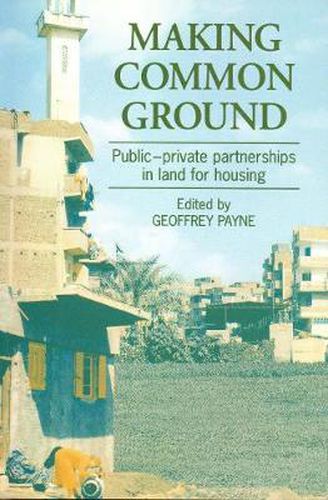Readings Newsletter
Become a Readings Member to make your shopping experience even easier.
Sign in or sign up for free!
You’re not far away from qualifying for FREE standard shipping within Australia
You’ve qualified for FREE standard shipping within Australia
The cart is loading…






A review of experience in designing and implementing a range of partnerships for the efficient and equitable use of urban land. Using examples from countries around the world and at all levels of economic development, it discusses the achievements and limitations of formal partnerships. Evidence is presented to show that a range of informal partnerships, or relationships, has evolved, especially in developing countries. These are shown to have made a far greater impact on urban land development and to have been of greater benefit to lower income groups. The book therefore adopts a broad and inclusive definition of partnerships and shows that they exist within a continuum of public/private relationships. All examples are assessed according to four criteria - the extent to which partnerships have: increased the supply of urban land; improved the efficiency of urban land markets; improved access for low-income groups; and provided a basis for a more productive relationship between public and private sectors. Recommendations are given for improving and expanding the contribution of partnerships according to varied local conditions.
$9.00 standard shipping within Australia
FREE standard shipping within Australia for orders over $100.00
Express & International shipping calculated at checkout
A review of experience in designing and implementing a range of partnerships for the efficient and equitable use of urban land. Using examples from countries around the world and at all levels of economic development, it discusses the achievements and limitations of formal partnerships. Evidence is presented to show that a range of informal partnerships, or relationships, has evolved, especially in developing countries. These are shown to have made a far greater impact on urban land development and to have been of greater benefit to lower income groups. The book therefore adopts a broad and inclusive definition of partnerships and shows that they exist within a continuum of public/private relationships. All examples are assessed according to four criteria - the extent to which partnerships have: increased the supply of urban land; improved the efficiency of urban land markets; improved access for low-income groups; and provided a basis for a more productive relationship between public and private sectors. Recommendations are given for improving and expanding the contribution of partnerships according to varied local conditions.